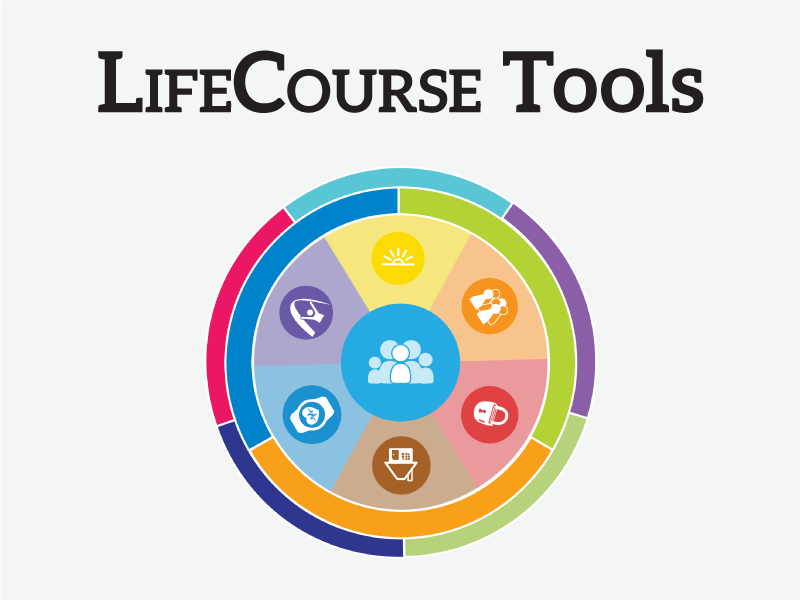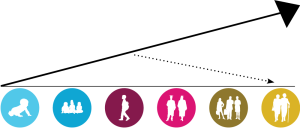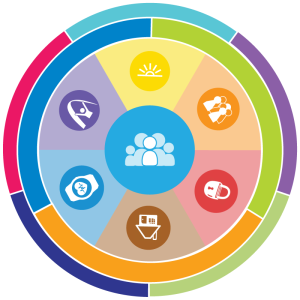The Charting the LifeCourse Framework was created BY FAMILIES to help individuals and families of all abilities and all ages develop a vision for a good life, think about what they need to know and do, identify how to find or develop supports, and discover what it takes to live the lives they want to live. Individuals and families may focus on their current situation and stage of life but may also find it helpful to look ahead to think about life experiences that will help move them toward an inclusive, productive life in the future.
Even though it was originally created for people with disabilities, this universally-designed framework may be used by any person or family making a life plan, regardless of life circumstances.
Even though it was originally created for people with disabilities, this universally-designed framework may be used by any person or family making a life plan, regardless of life circumstances.
The Principles
The following are the building blocks of the Charting the LifeCourse framework. They are the core principles and values that are important as we begin to think differently about what it means to support individuals with disabilities and their families to have good lives.
Core Belief:
All people have the right to live, love, work, play and pursue their life aspirations in their community.
All people have the right to live, love, work, play and pursue their life aspirations in their community.
|
ALL PEOPLE
|
FAMILY SYSTEM & CYCLES
|
LIFE STAGES & TRAJECTORY
|
ALL PEOPLE
|
|
ALL people are considered in our vision, values, policies and practices for supporting people with intellectual and developmental disabilities.
In the past, conversations about supporting people with disabilities and their families mainly revolved around those who are known to the disability service system. We know that number is very small in relation to the actual number of individuals with disabilities in the United States and we want to make sure ALL families have access to and choices about the supports they need. |
People exist and have reciprocal roles within a family system, defined by that individual. Roles adjust as the individual members change and age.
In not-so-recent history, people with disabilities were sent off to institutions, separating them from their families and the communities in which they were born, because people were afraid of the stigma of disability. A whole generation of adults with disabilities was thus cut off from having family in their life. Now, our culture is beginning to embrace the idea that people with disabilities have skills, dreams, and feelings like everyone else and belong with their families. |
Individuals and families can focus on a specific life stage, with an awareness of how prior, current and future life stages and experiences impact and influence life trajectory. It is important to have a vision for a good, quality life, and have opportunities, experiences and support to move the life trajectory in a positive direction.
What happens to us early in our lives can have a significant impact on our quality of life and well-being in the future. It is important to help people have positive, healthy experiences, adequate support, and ample opportunities to learn and make mistakes so that they can have better outcomes later in life. |
Individuals and families plan for present and future life outcomes that take into account all facets of life and have life experiences that build self-determination, social capital, economic sufficiency and community inclusion.
We believe that there is more to supporting people with disabilities than just health and safety, which has been the main focus of services and supports for quite some time. Our conversations need to change to talk about life outcomes – Are they going to have a job? Who will love them? Who is going to be there for them when I can’t? |




